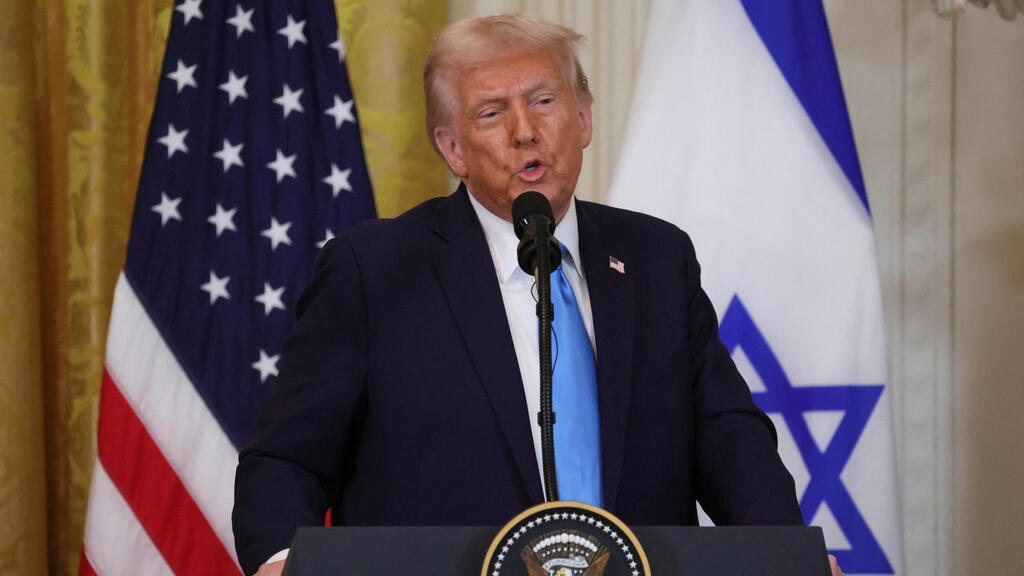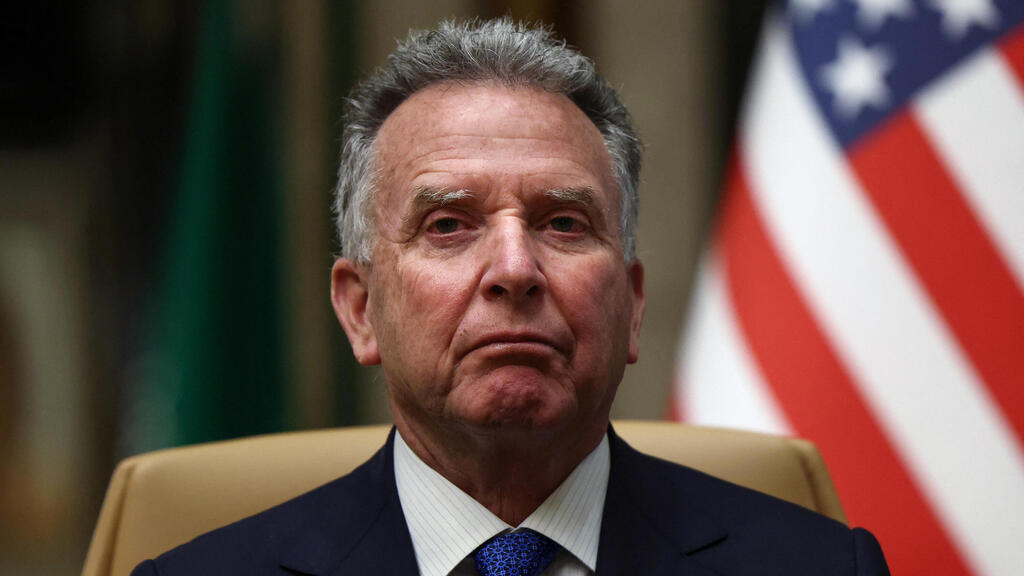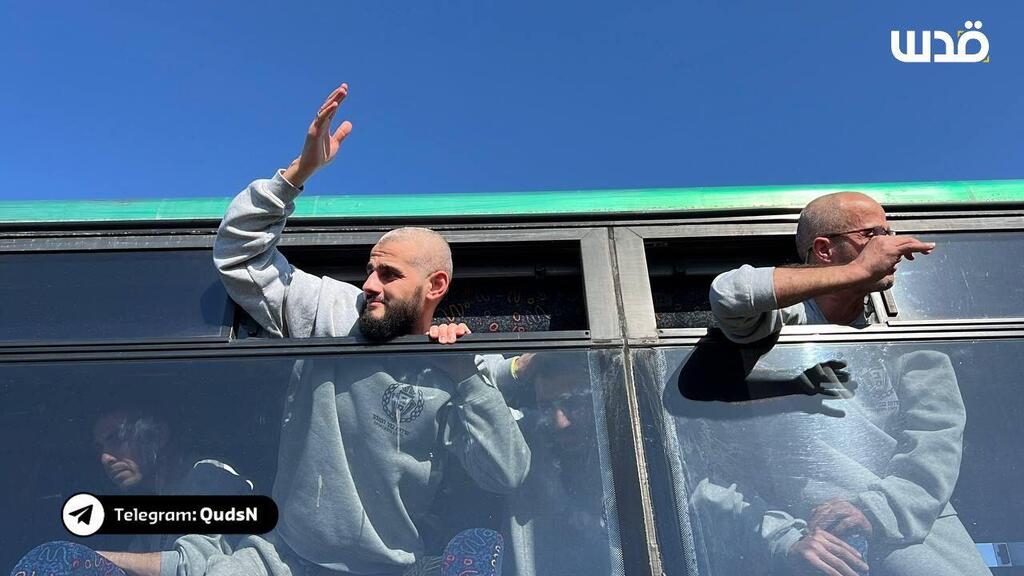Getting your Trinity Audio player ready...
The White House on Sunday called Israel’s decision to delay the Palestinian prisoner release following Hamas’ violation of the cease-fire agreement after the handover of a Palestinian woman’s body instead of that of Shiri Bibas "an appropriate response" and said U.S. President Donald Trump supports it.
White House National Security Council spokesman Brian Hughes told Ynet that “given Hamas’ barbaric treatment of the hostages, including the hideous parade of the Bibas children’s coffins through the streets of Gaza, Israel’s decision to delay the release of prisoners is an appropriate response. The president is prepared to support Israel in whatever course of action it chooses regarding Hamas.
The terror group’s official Basem Naim warned that the organization wouldn’t negotiate further cease-fire terms via mediators unless Palestinian prisoners were released as agreed.
Senior Hamas member Mahmoud Mardawi echoed this, saying: "There will be no talks with the enemy at any stage before the release of Palestinian prisoners that Israel agreed to free in exchange for the six Israeli captives. Mediators must force Israel to honor the agreement."
Meanwhile, the Commission of Detainees' Affairs & Palestinian Society Prisoners accused Israel of "deliberately stalling" the seventh prisoner release in the deal and committing "terror against prisoners and their families." It added that "There is no release set as of now."
Earlier, Trump’s Middle East envoy Steve Witkoff said he would visit the region this week, likely on Wednesday, and added, "I expect Phase II to be implemented.” In an interview with CNN, he said, "Netanyahu is motivated by the right reasons — Hamas cannot be part of any government in Gaza."
Get the Ynetnews app on your smartphone: Google Play: https://bit.ly/4eJ37pE | Apple App Store: https://bit.ly/3ZL7iNv
Witkoff added: "We first need to extend Phase I. We hope to have enough time to start Phase II and finish it in order to release as many hostages as possible and advance the talks."
When asked whether Prime Minister Benjamin Netanyahu wants to continue the deal or resume fighting in Gaza, he replied: "I believe the prime minister wants to see hostages released — that’s certain. He also wants to protect Israeli citizens. He has a red line — Hamas cannot govern Gaza when this war ends. We’re trying to square the circle."
The hostage and cease-fire’s first phase is set to conclude this week, with four deceased hostages scheduled for release on Thursday. Of the 33 hostages included in this phase, Shlomo Mansour, Ohad Yahalomi, Tsachi Idan, and Itzik Elgart remain in captivity. If the first phase is not extended, it will end once the remains of these hostages are positively identified.
Despite the crisis, Israel is preparing for a possible extension of Phase I, which would prioritize four fathers alongside injured or ill hostages whose conditions were only recently confirmed through testimonies from released captives.
A lengthy discussion on the terms is expected to take place before any extension takes place about how many Palestinian prisoners will be freed in exchange for the next hostages. This could allow for two or three additional releases, possibly coinciding with Ramadan, a period during which Hamas has no interest in resuming fighting.
However, extending releases in stages contradicts the wishes of many families whose loved ones — both living and deceased — were excluded from Phase I. These families are demanding a single release for all.






